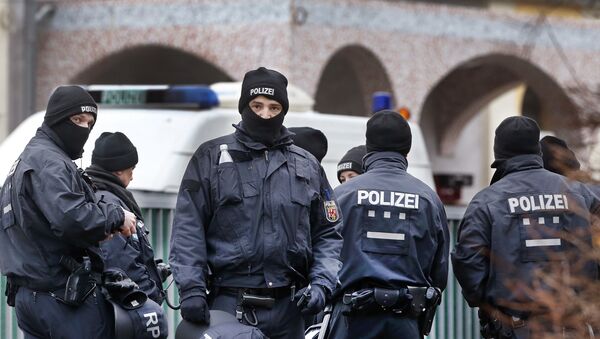Referring to an attack on the police force in Leipzig, the police union stressed that it was an actual instance of domestic terrorism:
"The basic definition of terrorism is spreading fear among the population through violence, and exactly that is happening here", Rainer Wendt, head of the German police union DPolG told DW.
"But this is a new quality: a targeted life-threatening attack on officers, and we have to assume, unfortunately, that at some point someone might be killed", Wendt thundered.
Interior Minister Horst Seehofer also commented on the violent episode in Saxony:
"This act shows that inhuman violence also comes from the left-wing extremist scene", Seehofer told the DPA news agency on Thursday, adding that a strong state needed a strong police force.
Leipzig Mayor Burkhard Jung, a member of the Social Democratic Party, weighed in in a similar way lamenting the non-peaceful start to the year:
"The New Year, unfortunately, did not begin peacefully at all, but started with a serious criminal outbreak of violence", Jung told DPA. "My thoughts are with the injured policeman and his family, and I wish him a speedy recovery".
After being attacked in the city’s Connewitz district, one police officer had to undergo an emergency operation. Per a police statement released in the early hours of 1 January, a group of people pushed a burning shopping cart into a group of police just after the New Year, before throwing burning fireworks at the officers.
A total of 10 people were detained following the attack, with police currently proceeding with an investigation for attempted murder.
"There is no justification for someone whose job it is to protect public safety to have fireworks and bottles thrown at them", said Jörg Radek, deputy leader of the GdP police union.
Meanwhile, Juliane Nagel, a socialist Left party representative in the Saxon parliament, who was in Connewitz on New Year's Eve, shifted the spotlight to the authorities’ reaction, describing in a blog post how police officers presses the crowds, admitting though that none of the police's actions was justification for the blatant violence against them.
Saxony, where Leipzig is the regional capital, has proved an epicentre for both kinds of extremism – left- and right-wing - where rival subcultures have been developing side-by-side. In November, the state government formed a new "Soko LinX", a police special unit focused on left-wing violence, after a series of arson incidents at Leipzig construction sites and companies.
In Germany at large, right-wing violence is no less a threat than that by left-wingers. According to the Office for the Protection of the Constitution, Germany's domestic intelligence agency, there are around 9,000 "violence-orientated" left-wing extremists and just over 12,000 right-wing ones on German police radars.
As for left-wing extremism, one alarm was sounded in 2017, when German politicians from the Christian Democratic Union (CDU) and the Free Democratic Party (FDP) demanded to fundamentally change approaches towards left-wing extremism after violent protests in Hamburg occurred during the 2017 G20 summit. According to a police statment from that time, some of the anti-globalist rallies that took place in Hamburg turned violent: an estimated 200 law enforcement officers were injured in clashes, and almost 300 protesters were detained.


